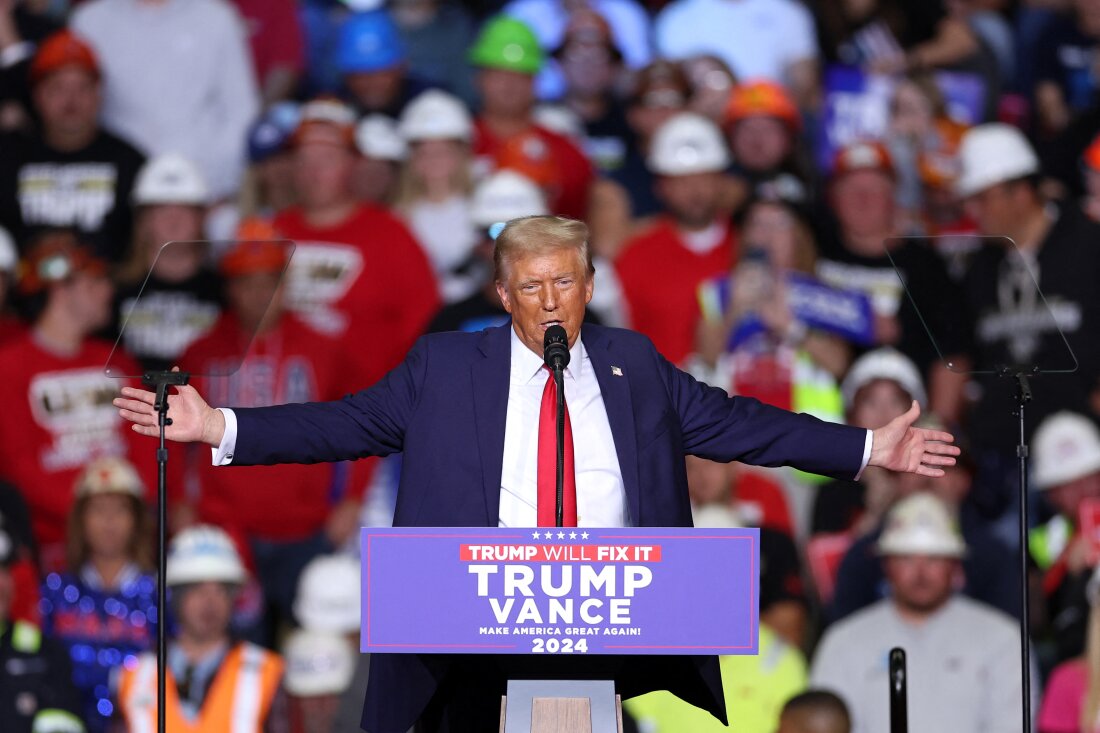New York — Donald Trump’s reelection in 2024 has jolted American media institutions, creating an intense reckoning over their role, relevance, and credibility in modern democracy. Trump’s defeat of Vice President Kamala Harris has raised profound concerns about journalism’s future, driving an existential crisis in newsrooms across the country. For many media professionals, the election outcome has called into question the very assumptions under which they operate, leaving some wondering if they can still connect with or influence a divided and distrustful public.
In the immediate aftermath of Trump’s victory, members of his base took to social media with the narrative that his win represented a rebuke of mainstream media. Commentators on platforms like X emphasized that Trump’s return was a referendum on the media’s authority, with conservative outlets like The Federalist proclaiming mainstream news to be “2024’s biggest loser.” Podcaster Matt Walsh echoed this sentiment, asserting that Trump’s reelection signaled the demise of traditional media’s ability to “set the narrative.” For a substantial portion of Trump’s supporters, this election served as a final rejection of the national press, which they perceive as out of touch, biased, and dismissive of their beliefs and concerns.
Such claims highlight a critical problem that has loomed over journalism since Trump’s first election: the steady erosion of trust between the press and a significant portion of the American public. A stark illustration of this distrust surfaced in a widely shared quote from an anonymous media executive who remarked, “If half the country has decided that Trump is qualified to be president, that means they’re not reading any of this media, and we’ve lost this audience completely.” This executive’s statement underscores the fact that many people who support Trump feel disconnected from mainstream media, seeing it as an irrelevant, elitist institution that no longer reflects their reality.
Wednesday morning saw the release of several post-election op-eds from conservative writers pointing out that the media’s disconnect from Trump’s base isn’t merely ideological but cultural. Over recent years, legacy media’s influence has waned as social media and independent conservative outlets grew more popular, providing alternative narratives to those presented by traditional networks. Semafor’s Dave Weigel argued that the media’s clout diminishes every election cycle, with the 2024 race as the latest evidence of a broader realignment in how Americans consume news. On stations perceived as sympathetic to Harris, ex-Republican commentators expressed dismay at Trump’s return, while on conservative podcasts, those reactions were viewed as further proof of a media establishment that has lost touch with the electorate.
CNN political analyst Scott Jennings made this point clear during a post-election broadcast, noting that in the weeks leading up to the election, the media focused on fringe stories instead of key issues affecting everyday Americans. According to Jennings, journalists overlooked the fundamentals of the election: economic concerns, inflation, and feelings of financial insecurity that motivated voters. “The story that was portrayed was not true,” Jennings stated bluntly. “We were told women lying to their husbands, Puerto Rico changing the election, but ignored inflation and people barely able to tread water.” Jennings emphasized the need for journalists to reckon with their failures and learn how to communicate with the portion of the country that turned out in force to support Trump.
Meanwhile, liberal commentators like Ashley Allison pointed out that the media’s disconnect is not solely limited to Trump supporters. She argued that the voices of struggling Americans exist on both sides of the aisle, with voters for both Harris and Trump feeling ignored or misunderstood by traditional news sources. “The people who voted for Kamala Harris are struggling too,” she said. Her comments reflect a sense of frustration shared by Americans across political divides who feel that their experiences are underrepresented in the press.
Looking forward, Trump’s reelection is likely to intensify his antagonism toward the press. Since his first term, he has frequently denounced the media as “fake news” and “the enemy of the people,” accusations that have intensified his base’s mistrust of mainstream media. Trump’s renewed power raises concerns about whether his administration might take retaliatory actions against media outlets he perceives as adversarial. Some media executives worry that he could make good on previous threats to revoke broadcast licenses, limit press access to the White House, or punish networks that air critical coverage.
Inside newsrooms, editors are urging reporters to remain steadfast. Roger Lynch, CEO of Conde Nast, issued a memo on Wednesday reminding staff of their responsibility to uphold journalistic integrity, emphasizing that a free and independent press is crucial to the nation’s democratic foundation. “Now, more than ever,” Lynch wrote, “we are steadfast in our mission to uphold the principles of independent journalism. A thriving, independent press is vital to democracy and the future we all share.”
As Trump’s administration takes shape, journalists will face the immense task of adapting their approach to cover an electorate deeply divided on what constitutes truth, fairness, and fact. It is a task that may shape the profession itself as the press works to prove its value in an era of unprecedented scrutiny.








